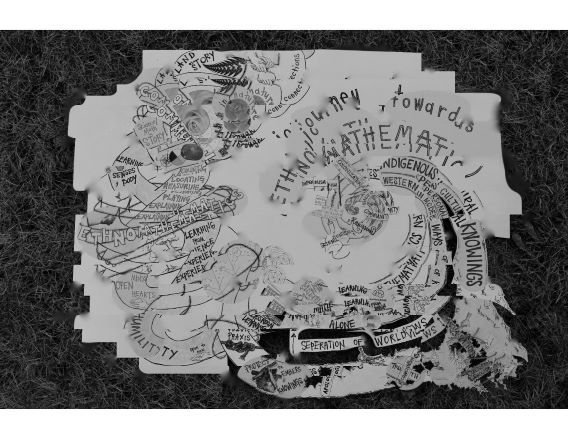A tale of two scholars: Developing transculturally through dialogue and writing
Keywords:
International Doctoral Seminar, TransculturalAbstract
Short term international exchanges have been developed worldwide to offer collaborative research and cultural training opportunities for graduate students. However, the ability to develop transcultural competencies in these exchanges is often hampered by time constraints. This inquiry uses a collaborative, multi-sited autoethnographic approach to explore the potential of pursuing a transcultural relationship through the act of writing an academic article for publication post-seminar. Two doctoral scholars, one originally from China, but pursuing a doctorate at the Queensland University of Technology, Australia, and one from the University of Calgary, Canada, use multiple connected sites (face-to-face, WeChat, Google docs, email) to further their transcultural development through professional and personal collaboration. The authors used Slimbach’s (2005) transcultural competencies as a framework to guide this work. Based on insights developed through the process, the authors present recommendations for future international doctoral seminar participants.
References
Aldridge, J., Kilgo, J., & Christensen, L. (2014). Turning culture upside down: The role of transcultural education. Social Studies Research and Practice, 9(2), 107-119. Retrieved from http://www.socstrpr.org/wp-content/uploads/2014/ 10/MS06572 _Aldridge.pdf
Black, H. T., & Duhon, D. L. (2006). Assessing the impact of business study abroad programs on cultural awareness and personal development. Journal of Education for Business, 81(3), 140-144.
Chang, H., Ngunjiri, F., & Hernandez, K. A. C. (2016). Collaborative autoethnography. London, UK: Routledge.
Douglas, C., & Jones-Rikkers, C. G. (2001). Study abroad programs and American student worldmindedness: An empirical analysis. Journal of Teaching in International Business, 13(1), 55-66.
Eyler, J., & Giles Jr, D. E. (1999). Where's the Learning in Service-Learning? Jossey-Bass Higher and Adult Education Series: ERIC.
Epstein, M. (2009). Transculture: A broad way between globalism and multiculturalism. American Journal of Economics and Sociology, 68(1), 327-351.
Gatson, S.N. (2011). The methods, ethics, and politics of representation in online ethnography. In N. K. Denzin and Y. S. Lincoln (Eds.), Handbook of qualitative research, (4th Edition, 513-527). Thousand Oaks, CA: SAGE.
Gorski, P. C. (2008). Good intentions are not enough: A decolonizing intercultural education. Intercultural Education, 19(6), 515-525.
Hernández-Hernández, F., Fendler, R., & Sancho, J. M. (2013). Framing multi-sited ethnography as an approach for coping with the complexity of young people's ways of learning, communicating and expressing themselves in and outside secondary schools. In P. Landri, A. Maccarini, & R. De Rosa (Eds.), Networked together: Designing participatory research in online ethnography, 97-106. Barcelona, Spain: University Network for Research and Educational Innovation.
Jenkins, K. (1996). Designing sustainable educational linkages with institutions in developing countries. International Review, 6, 9-29.
Jones, S. R., & Hill, K. (2001). Crossing High Street: Understanding diversity through community service-learning. Journal of College Student Development, 42(3), 204-216.
Jones, S. R., Rowan-Kenyon, H. T., Ireland, S. M.-Y., Niehaus, E., & Skendall, K. C. (2012). The meaning students make as participants in short-term immersion programs. Journal of College Student Development, 53(2), 201-220.
Kehl, K., & Morris, J. (2008). Differences in global-mindedness between short-term and semester-long study abroad participants at selected private universities. Frontiers: The Interdisciplinary Journal of Study Abroad, 15, 67-79.
Lewis, J. (2002). From culturalism to transculturalism. Iowa Journal of Cultural Studies, 1(1), 14-32. Retrieved from https://ir.uiowa.edu/cgi/viewcontent.cgi?article=
&context =ijcs
Marcus, G. E. (1995). Ethnography in/of the world system: The emergence of multi-sited ethnography. Annual Review of Anthropology, 24(1), 95-117.
McLeod, J., & Bloch, M. (2010). Creating discursive and relational communities through an international doctoral exchange. In M. Walker & P. Thomson (Eds.), The Routledge doctoral supervisor’s companion: Supporting effective research in education and the social sciences (pp. 270-281). Abingdon, UK: Routledge.
Sax, L. (1997). The benefits of service: Evidence from undergraduates. Educational Record, 25.
Slimbach, R. (2005). The Transcultural Journey. Frontiers: The Interdisciplinary Journal of Study Abroad, 11, 205-230.
Sowa, P. A. (2002). How valuable are student exchange programs? New Directions for Higher Education, (2002)117, 63-70.
Sutton, R. C., & Rubin, D. L. (2004). The GLOSSARI project: Initial findings from a system-wide research initiative on study abroad learning outcomes. Frontiers: The Interdisciplinary Journal of Study Abroad, 10, 65-82.
Williams, T. R. (2005). Exploring the impact of study abroad on students’ intercultural communication skills: Adaptability and sensitivity. Journal of Studies in International Education, 9(4), 356-371.
Wolff, S. (2015). Experiences with Multi-Sited Ethnographies in Transnational Studies. In S. Bollig, M. S. Honig, S. Neumann, & C. Seele (Eds.), MultiPluriTrans in educational ethnography: Approaching the multimodality, plurality and translocality of educational realities, (pp. 57-78). Bielefeld: transcript.
Downloads
Published
How to Cite
Issue
Section
License
Authors retain copyright of their papers, including publishing and commercial rights. Attribution should be given to EPIGREP when publishing a previously published article in another venue, including personal websites and blogs.
Copyright information for readers can be found here: http://creativecommons.org/licenses/by-nc-nd/4.0


